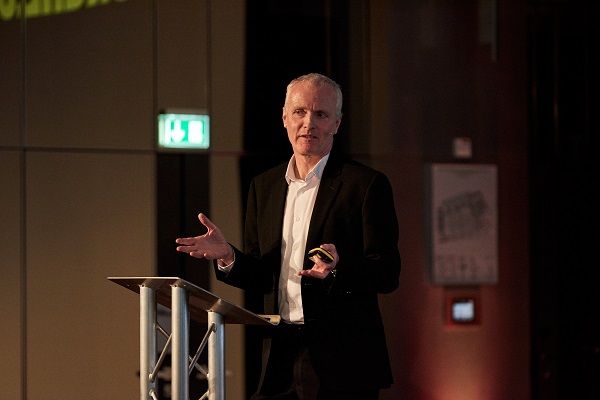An absence of “effective disclosure” from investment management companies is preventing fund selectors from making fully-informed decisions for their clients, according to a leading sustainability academic.
Speaking at the 2019 Expert Investor ESG Congress in Berlin, Rory Sullivan, a visiting professor at the London School of Economics and co-founder of Chronos Sustainability, told delegates that fund groups need to make more information available from their engagement and stewardship activities.
“The funds are not offering what they say on the tin,” he said in his keynote address.
“Most of these funds are within houses which are good at stewardship, voting, etc., but, as a purchaser of funds, that information isn’t readily available. The absence of effective disclosure limits your ability as a fund selector to do your job.”
Sullivan said that fund managers need to recognise that knowledge of environmental, social and governance (ESG) in the wholesale market is now far more sophisticated than it once was, with today’s fund selectors expecting a higher level of detail when strategies are marketed.
He cited impact investment strategies as an example, stating that fund managers are often much more likely to want to talk about how they invest, rather than adequately defining the outcome – something which clients often want to know.
“If you talk to fund managers, they might say that measuring impact is difficult, so ‘let us show you our processes.’ This leads to a disconnect between the fund management industry and what your clients are asking you, the fund selector, to do.
“The debate has achieved a level of maturity and I’m not convinced that the investment industry are necessarily up to speed with what is going on.”
Sullivan’s scathing assessment of investment managers’ retail offerings is particularly damning since he was once, himself, head of responsible investing at Insight Investment between 2002 and 2009. His academic credentials are equally impressive, having only recently worked on a project with the University of Cambridge’s Institute for Sustainability Leadership.
But his speech wasn’t purely taking aim at fund management groups. He urged fund selectors to analyse their own ESG approaches and to think critically about the claims made by many commercially-driven research papers put into the market.
“It is well accepted that ESG issues affect investment performance. We have seen numerous corporate failures and corporate scandals. But the fact that these issues are relevant, doesn’t necessarily mean that they should make a difference in the way you invest.
“Just because these issues are material, doesn’t necessarily mean that every investor will benefit from analysing them. Can you extract value from analysing these issues? I think it is an open question.”
Sullivan said there are other reasons why fund selectors should consider ESG issues, however, such as aligning portfolios to the values that clients express and their long-term investment objectives.







